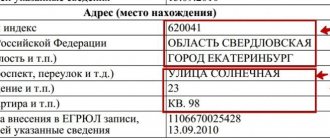Official secret as an object of law
The concept of secrecy itself implies that there is some information that is not subject to disclosure. The difference between official secrets and other types of secrets is that it relates to a specific area - the civil service, and only civil servants (and municipal employees) work with it.
The concept of official secrets is not new. In the USSR, according to the legislation in force at that time, there were three levels of confidential information:
- state secret (classified as “top secret”, “information of special importance”);
- actual official secret (classified as “secret”);
- proprietary information, usually marked “for official use.”
In 1993, Federal Law No. 5485-1 dated 07/21/93 “On State Secrets” was adopted. Various degrees of secrecy began to be assigned to information containing state secrets. They correspond to the degree of damage that could be caused to the security of the country in the event of disclosure.
Official information in general turned out to be insufficiently provided for by law, despite the fact that it is used in the work for the performance of official duties by representatives:
- government bodies;
- municipal government bodies;
- state enterprises;
- government institutions.
At the same time, proprietary information is an independent object of law. The expression “official secret” is found in the legislative and regulatory legal field, in various documents and articles.
In addition to the already mentioned Federal Law “On State Secrets,” Federal Law No. 149 dated July 27, 2006 “On Information” relates to secret information of an official nature. In particular, official secrets are mentioned in Art. 9 of this Federal Law.
The procedure for handling documents containing official secrets is enshrined in government decree No. 1233 of 03/11/94. This document has a limited scope - it is used only by federal executive bodies. Federal laws relating to the work of certain specialists - civil servants, as a rule, have provisions relating to official secrets.
In Presidential Decree No. 188 of 03/06/97, which approves the list of confidential information, official secrets are defined as “official information, access to which is limited by public authorities” in accordance with the Civil Code of the Russian Federation and federal legislation.
Official secret in the Russian Federation: definition, signs that it can be classified as
To date, an unambiguous definition of official secret has not been given, therefore, in order to have an idea of the information that relates to this section, it is necessary to familiarize yourself with the legislation of the Russian Federation. Based on the analysis of regulations, it is possible to draw a conclusion and identify the main features regarding this issue.
To put it simply, official secret is information to which others are not allowed access, but government authorities can use it.
Such information is not disclosed, except when requesting information from law enforcement agencies.
This may be information about the adoption of a child, the nature of the patient’s illness, deposits of Russian citizens in banks, etc.
The number of people who must comply with it includes potential carriers and all employees holding a government position. organs That is, this applies to members of the executive, judicial and legislative branches. This also includes employees of subordinate organizations.
What information can be included in it?
The category of “official secrets” includes information that is classified according to the following principle:
- Important information that is entered into the database and is marked “for official use” . It may include data on the activities of municipal or state bodies. In turn, this block has its own sections that contain: military secrets;
- information about the investigation that should not be made public;
- judicial secrecy, which includes meetings of judges, etc.
- information that reveals certain aspects of a citizen’s personal life, details about religion, financial situation, or data that was clarified in the courtroom;
The identification of those officials who have access to information and are obliged to ensure its confidentiality is carried out by the leadership of federal bodies. At the same time, designated employees must classify proprietary information as one that should not be disseminated.
For organizations, this data may include:
- Information that includes details about the founders of the company, as well as all the data of other employees. This may include information about work experience, a criminal record, evidence of the skills a person possesses, business connections and professional knowledge.
- Information regarding the management structure, training methods for personnel recruited for a certain position.
- Data on the participation of a certain person in the capital of another enterprise, what securities he owns and what contribution was made on his part. This should also include data on bank accounts and debts.
- Information about who finances the company. At the same time, details about the concluded transactions, announced amounts and conditions are not covered. Employees do not have the right to disseminate information about the company's creditworthiness. Information about the security of the organization and the state of the technical base is not subject to general disclosure.
From the above examples, we can conclude that all such details are not the subject of independent transactions, but at the same time they can cause damage to the enterprise and significantly reduce its business reputation.
Regulation according to the laws of the Russian Federation
In order to understand how the law classifies official secrets, it is enough to open the first part of Article No. 139 of the Civil Code of the Russian Federation for 2008.
It was there that data on information that has potential and actual value was reflected.
In addition, the need for its preservation and limited access is described.
What is most remarkable is that trade secrets also comply with the same standards.
To understand the significance of official secrets in legislation today, it is necessary to immerse yourself in the study of paragraph 3 of the list of information of a confidential nature.
It was approved by the President of the Russian Federation in 1997.
Based on this provision, this is information that state authorities have classified as classified materials in accordance with the law.
There is currently no more accurate description of the concept under consideration. But nevertheless, a fairly impressive number of laws, departmental regulations and by-laws contain clauses that indicate that such information should not be disseminated .
Differences from professional secrecy
Many people mistakenly believe that professional and official secrets are approximately the same thing. This assumption is incorrect, since the concepts are completely non-identical. If you look at paragraph 4 of the list of confidential information, the first category includes information to which access was limited by the constitution, that is:
- correspondence, telephone conversations and the secret of confession;
- This also includes notarial data, medical details, attorney-client privileges and others.
Despite the fact that these data are classified as professional secrets, they can also become the subject of official secrets.
This happens if the information is obtained by employees of government agencies, judicial and investigative bodies.
For example, this may be the requested information about the plaintiff’s medical history, all the details of negotiations, phone calls, etc.
In this case, information that was received by a lawyer or clergyman due to his position cannot become an official secret. Based on paragraphs 3 and 4 of Article 56 of the Code of Criminal Procedure of the Russian Federation, they cannot act as witnesses. The confidentiality of confession and attorney-client privilege is also evidenced by Article No. 69 of the Code of Civil Procedure.
Responsibility for disclosure
An official who violated the ban on disclosing this secret will face punishment. This may involve criminal or administrative liability.
The degree of guilt and punishment are assigned depending on how the confidentiality regime was violated and what information was disclosed.
Officials who possess protected information about the legal state of affairs of a certain person fall under administrative responsibility. However, disclosure of such data may cause a fall in the value of assets or securities. In addition, employees of the state customer's enterprise are covered under it.
In this case, the person is punished in accordance with Article 15.21 of the Code of Administrative Offenses of the Russian Federation. The violator is charged a fine of 30 to 50 thousand rubles . Failure to pay is followed by deprivation of official powers for a maximum of 2 years.
Criminal liability implies punishment depending on the severity of the violation:
- disclosing the secret of adoption implies a fine of 80 thousand rubles or imprisonment for up to 120 days ;
- disclosure of the security system in relation to participants in criminal proceedings or a judge is punishable by a fine of 200 thousand rubles or up to 5 years in prison ;
- If information about security measures taken in relation to a person holding a position in law enforcement agencies is disclosed, the violator is obliged to pay a 200 thousand or be imprisoned for up to 5 years .
Official and professional secrets
From what was said earlier, it is clear that today there is no clear, indisputable legislative division between various types of secrets. In addition to official secrets, they especially highlight state secrets, there are secrets of private life (personal, family, secret of voice), and there are commercial secrets relating to business secrets. However, the most significant and at the same time difficult process is the attempt to separate official and professional secrets. Is this possible in principle?
Let's try to figure it out. So, official secrets are the sphere of work of civil servants and municipal employees. This is its main feature. Professional secrets may be held by professionals occupying various positions not associated with state and municipal service. Official secrets in practice are regulated by special-purpose acts intended for officials, and professional secrets are primarily subject to the norms of labor legislation.
Let us note that both types of secrecy are mentioned in the Labor Code of the Russian Federation (Articles 57, 81, 243). The composition of secret information also varies. As a rule, a professional secret is a narrower array of information compared to an official secret.
Official secrets include information about the activities of a government agency or municipal body, in accordance with the internal regulations of these bodies. At the same time, professional secrets may include highly specialized information that is not subject to disclosure, for example, the secret of confession, journalistic secrets, or other secrets related to a particular profession.
On a note! There are secrets that cannot be clearly attributed to professional or official secrets. For example, the personal data of a private person may constitute an official secret for a judge who is a government official, and a professional secret for an employee of the personnel department of a commercial company.
Main differences from other types of secrets
The most difficult thing is to distinguish between official and professional secrets. The main difference is that the recipients of official secrets are employees of a certain government agency who learned about it while doing their job. For example, if a doctor becomes aware of his diagnosis during the course of treating a patient, this information is the doctor’s medical (professional) secret, regardless of what structure he works in. And if data on a citizen’s diseases is requested by an investigator to solve a crime, then for the employees of the investigative body they will constitute an official secret.
Official and trade secrets differ in similar ways. A trade secret has commercial value, and it is up to the company to determine what is considered to be it. If information classified by a company becomes the property of a government agency (for example, the tax service during an audit), then for its employees it is an official secret. Only government officials are considered holders of official secrets. The staff of commercial structures does not have it.
State secret and official secret are different concepts. If official secrets are protected in order to protect the interests of an individual or legal entity, then state secrets are designed to protect the interests of the country as a whole, to ensure its security and existence on the world map. A separate law No. 5485-1 dated July 21, 1993, was adopted on state secrets, regulating the main issues in this area. The draft law on official secrets is still under development.
What information is a business secret?
There are several different classifications of official secrets. It can be divided into categories as follows:
- official secret information about the work of federal government and state bodies; restrictions on access to such information are dictated by federal legislation in order to protect the interests of the country;
- secrecy of the preliminary investigation and judicial secrecy, including the secrecy of the work of judges and juries;
- confidential information that comes to the attention of officials on duty: any personal, professional or business-related information that is not subject to disclosure.
There is also a slightly different classification that reveals the previous one, specifying official secrets by object. According to it, the official ones include:
- military secret;
- secret of the investigation;
- judicial secrecy;
- tax secrecy;
- confidential information that constitutes someone's commercial, banking, professional secret or secret of personal life, owned by a state or municipal employee.
Due to insufficient legislative elaboration of the issue of distinguishing between different types of secrets, many legal experts propose to classify as official, in addition to those mentioned above, attorney-client secrecy and medical secrecy.
Let us examine in more detail some issues of official confidentiality that we most often encounter in everyday life.
Civil records of the population - this information has dual secrecy: they are a secret of personality and an official secret at the same time: citizens have the right to personal life in accordance with the Basic Law of the country (Article 23 of the Constitution), at the same time, officials who reflect the facts of this life, in By virtue of their official position, they do not have the right to arbitrarily distribute this information to third parties. Usually, first of all, when talking about the registry office information, they mention the secret of adoption, but equally, official information about birth, death, change of surname (name), change in marital status, determination of kinship (establishment of paternity) is not subject to disclosure. Such information is provided only at the request of law enforcement and judicial authorities.
For similar reasons, medical (medical) secrets are protected, which, as stated above, some experts propose to consider as official secrets.
As a taxpayer, every citizen of the Russian Federation in one way or another encounters the concept of tax secrecy. Not all information transmitted to the tax office is an official secret. For example, a taxpayer identification number and information about violations of tax laws are publicly available information.
At the same time, tax official secrets are:
- information contained in tax reporting, declarations;
- grounds for calculating taxes, calculations, information about the company’s income and expenses;
- data on contributions to the budget for 3 years;
- other information directly related to the calculation and payment of tax amounts.
Official secrets can generally be divided into two parts:
- information about the work of the state (municipal) structure itself;
- information that has become known to officials in accordance with the law and due to the performance of their official functions.
Here, too, there is an alternative point of view on the classification of this type of secret. It states that only data on the official activities of bodies, which must be hidden from wide publicity until a certain time, can be classified as official secrets. Such secrecy will guarantee the effective implementation of the tasks assigned to state and municipal structures by the legislator. We are talking, in particular, about conducting a certain type of inspections and other operational activities of a similar nature, which are usually carried out by the Federal Tax Service, prosecutors, etc.
Other aspects of secret information, according to this opinion, should be classified as professional secrets.
Results
Information that is not classified as an official secret includes publicly available information about the structure and mode of operation of government agencies, the sanitary-epidemiological and environmental situation, hazardous natural phenomena, and the expenditure of government resources.
Documents necessary for the implementation of the rights, freedoms and responsibilities of citizens, accumulated in open information resources, and other types of information are also publicly available. You can find more complete information on the topic in ConsultantPlus. Full and free access to the system for 2 days.
What information is not considered an official secret?
The work of state and municipal bodies, if we consider it from the point of view of official secrets, is based on the protection of non-disclosed information that does not belong to them, the so-called “other people's secrets”. They themselves are also a source of this kind of information. If it does not relate to a state secret, according to Federal Law No. 5485-1, therefore, it represents an official secret reflected in special regulatory documents.
Obviously, not all information from state or municipal structures is secret.
The following information cannot be considered an official secret:
- Legislative acts containing information on the legal status of government bodies, organizations, structures, associations relating to the rights and freedoms of citizens.
- Functions and operation of the authority and its location.
- The procedure for considering applications from individuals and legal entities to government agencies.
- Information about various types of emergencies, including natural ones, information necessary for the safety of the population and production facilities.
- Information about the budget of the state and its municipalities, other economic information in which the population is interested.
- Open archives and documents necessary to exercise the rights of citizens, in accordance with current legislation.
Ways to ensure openness of proprietary information
Official information that is not classified as an official secret must be available to all interested users of such information.
Availability of information is ensured in the following ways:
- publications in the media - the texts of adopted laws and regulations, information about government procurement, decisions of the Constitutional Court are posted;
- posting on the Internet information about target programs, international cooperation, statistical and other information, the posting of which is required by law;
- posting online general information about courts (name, organizational structure, powers, etc.), judicial statistics, court staffing, files of arbitration cases;
- placement of stands in the premises occupied by government agencies about their activities (operating procedures, algorithms for obtaining information);
- through open access to archival documents, originals and (or) copies from archival funds and libraries;
- the opportunity to exercise the right (in a regulated manner) to attend meetings of collegial authorities (government, State Duma, etc.) and open court hearings for journalists, representatives of legal entities, government agencies and ordinary citizens;
- provision by government agencies of responses to requests from any person or organization.
You can familiarize yourself with various types of requests on our portal:
- “We are preparing a request to the Social Insurance Fund about the status of settlements - sample”;
- “The Federal Tax Service recommends inspectors to submit inquiries to banks with revoked licenses”.
Protection of official secrets
It is obvious that official secrets need to be protected. A number of mechanisms have been formed to protect official secrets from illegal acquisition by third parties, changes to them, and destruction.
A non-disclosure agreement, the reflection in an employment contract of clearly defined additional conditions and measures to preserve official secrets, the development of a separate LNA regarding official secrets are legal instruments for the protection of confidential official information. In addition to them, technical means of protection may also be provided, including encryption of information.
An important role is played by the organization of the process of preserving official information in a team: recording employees with special access to such information, their training, a special procedure for working with business papers and other media that constitute official secrets. An employee who leaks secret official information may be dismissed under Art. 81 Labor Code of the Russian Federation, clause 6 (c).
Article 13.14 of the Code of Administrative Offenses of the Russian Federation provides for fines for disclosing information with limited access. In particular, if the “leak” occurred through the fault of an official, the fine can range from 4 to 5 thousand rubles.
Disclosure of official secrets may also result in criminal liability. Thus, Article 155 of the Criminal Code of the Russian Federation provides for a fine of up to 80 thousand rubles, arrest of up to 4 months for disclosing the secret of adoption. In this case, an unscrupulous official may be deprived of the right to hold certain positions for a period of up to 3 years.
Articles are also provided for the disclosure of official secrets concerning the protection of participants in legal proceedings, law enforcement officials, and regulatory structures.
Let's summarize
- The main feature characterizing official secrets is information that is not subject to disclosure and is related to the work of state and municipal bodies. Due to the fact that the legal mechanism for defining official secrets and working with them is not sufficiently spelled out in the current legislation, there is no unified classification of official secrets.
- Of course, the following will be considered official secrets:
- “someone else’s secret” of a private person or legal entity, if it is owned by a government employee;
- official information about the work of government agencies, municipal structures, which is not a state secret, but has restrictions on access according to internal documents;
- investigative secrecy and judicial secrecy.
- A number of legal researchers also highlight tax secrets, medical secrets, and secrets related to civil records of the population as special categories. Information aimed at preserving the life, health of the population, and the exercise of their rights and freedoms is not an official secret.
- Protection of official secrets consists of signing appropriate non-disclosure documents when hiring. Technical and organizational protection measures are also applied. The Code of Administrative Offenses and the Criminal Code of the Russian Federation provide for articles punishing unscrupulous officials for disclosing secret information.
Restricted information
The category of “official secrets”—information that is not subject to disclosure—includes the following documents:
- Legislative acts regarding the legal status of government agencies, public associations, rights and property of citizens of the country.
- Information about emergency situations, dangerous environmental processes and natural phenomena, epidemiological situation.
- The structure of executive authorities, their functions, directions and forms of implementation of activities.
- The procedure for reviewing submitted documents.
- Decisions on submitted papers.
- Information about the budget and use of government resources, as well as the state of the economy.
- Documentation that accumulates in archives and information networks of organizations.
In general, experts are concerned that the concept of “state and official secrets” includes information that can be used to judge facts of violation of the law by government agencies, as well as their officials. And such omissions allow officials to completely limit access to information from internal investigations into the work of the state apparatus and many other shortcomings. Although maximum openness in this area could become the main incentive for the healthy functioning of power structures.
According to the Regulations, the leadership of federal executive organizations, within the context of their competence, establishes the category of officials who are authorized to classify documents or official information as a group of limited distribution, thereby ensuring its protection.








